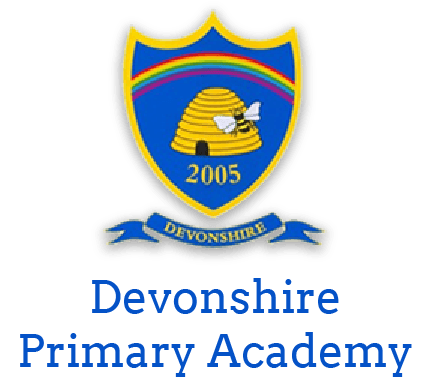“I’m right and you’re wrong; I’m big and you’re small, and there’s nothing you can do about it.” – Miss Trunchbull
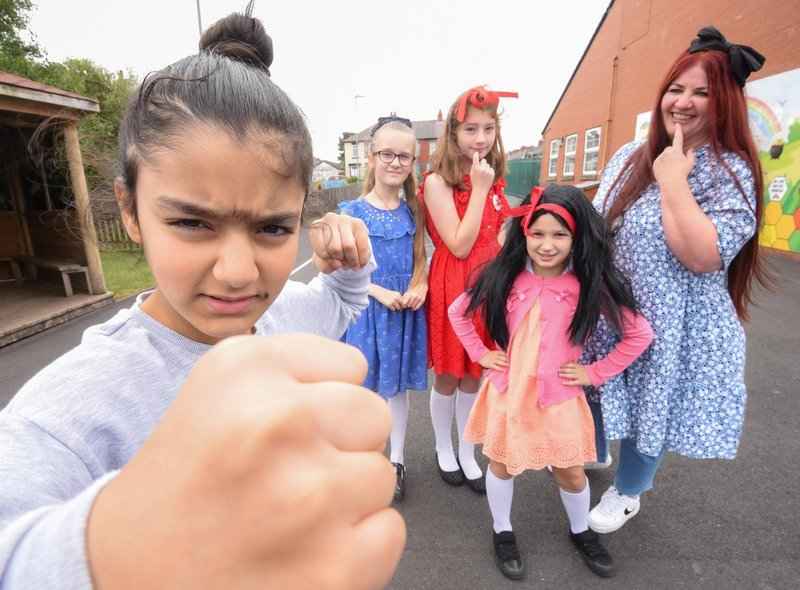
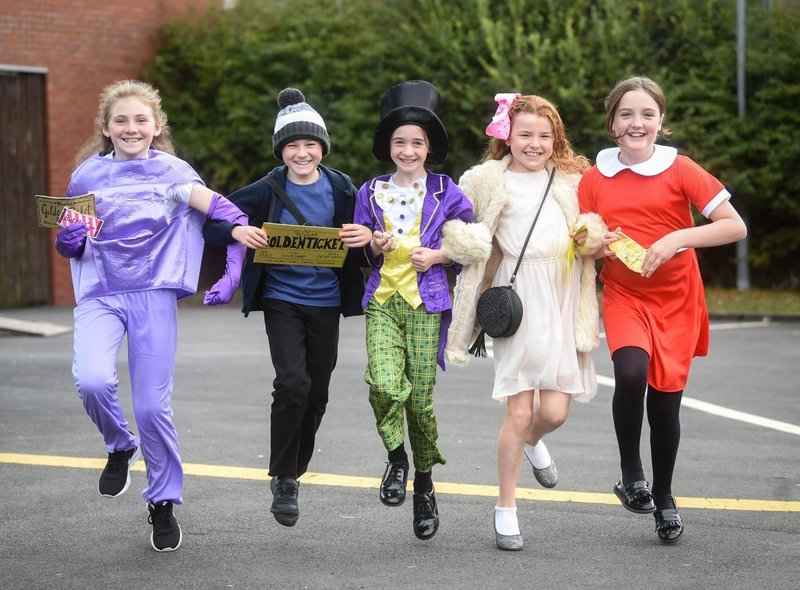
Blackpool Gazette wrote an article about our Roald Dahl Day event!
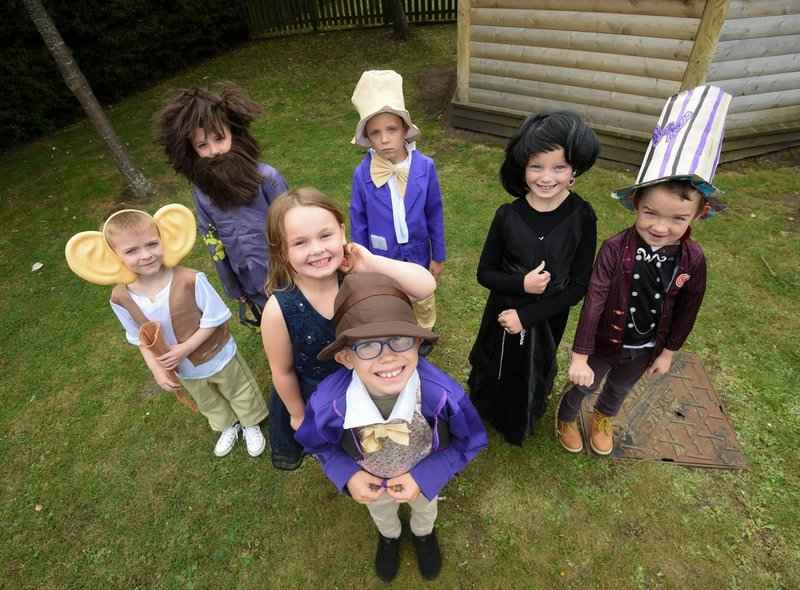
“If you have good thoughts, they will shine out of your face like sun beams and you will always look lovely.” – Roald Dahl

Even the staff got fully involved with our Roald Dahl Day event!
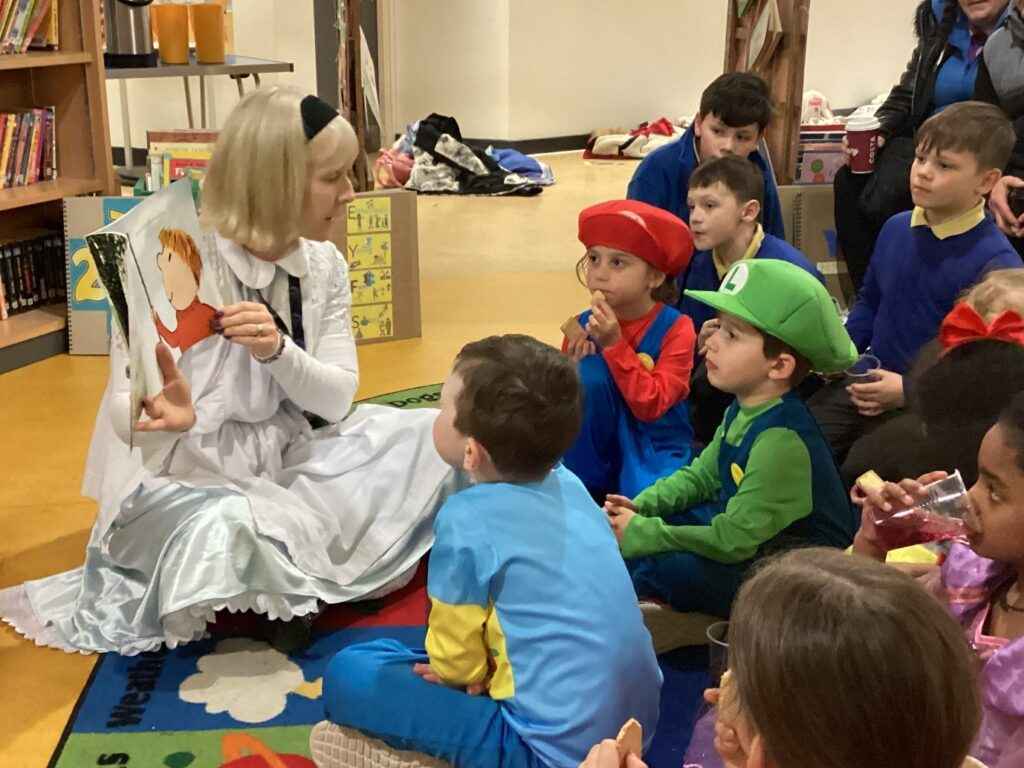
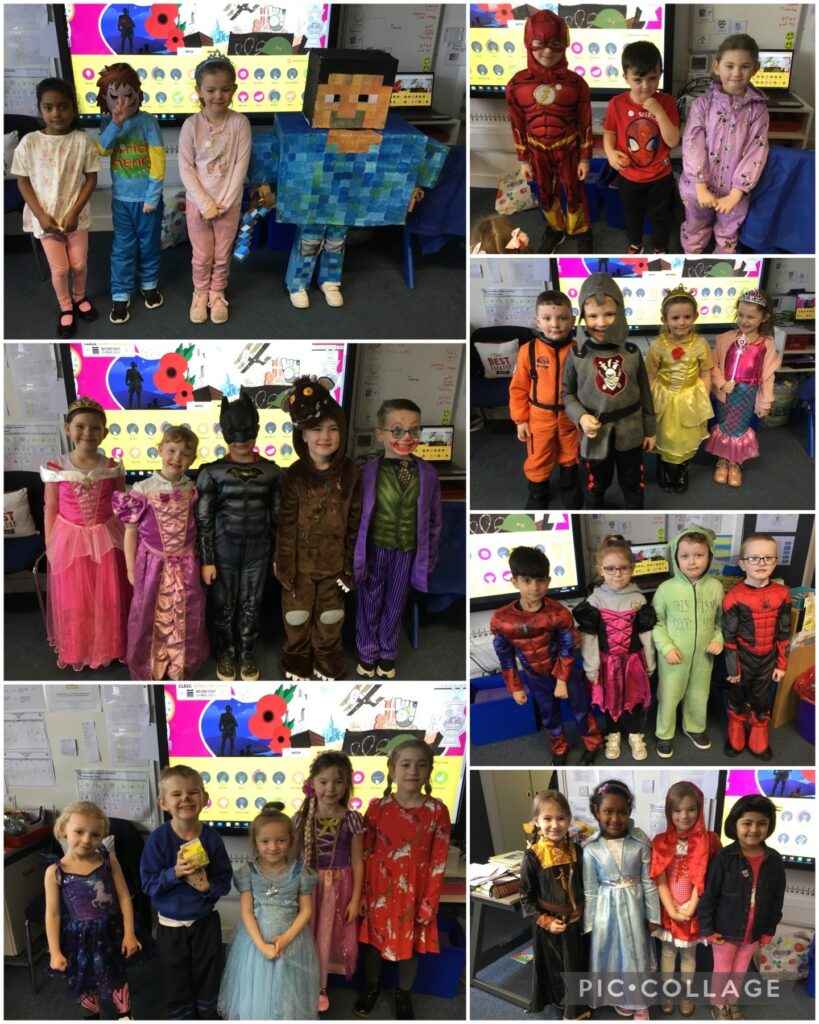
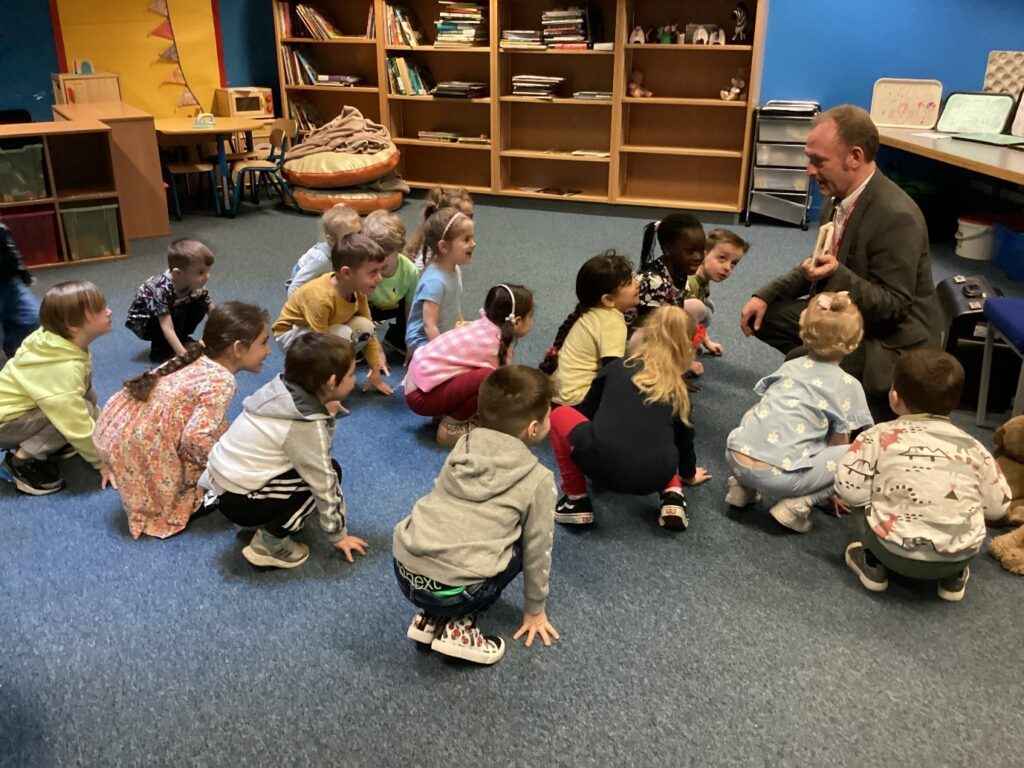
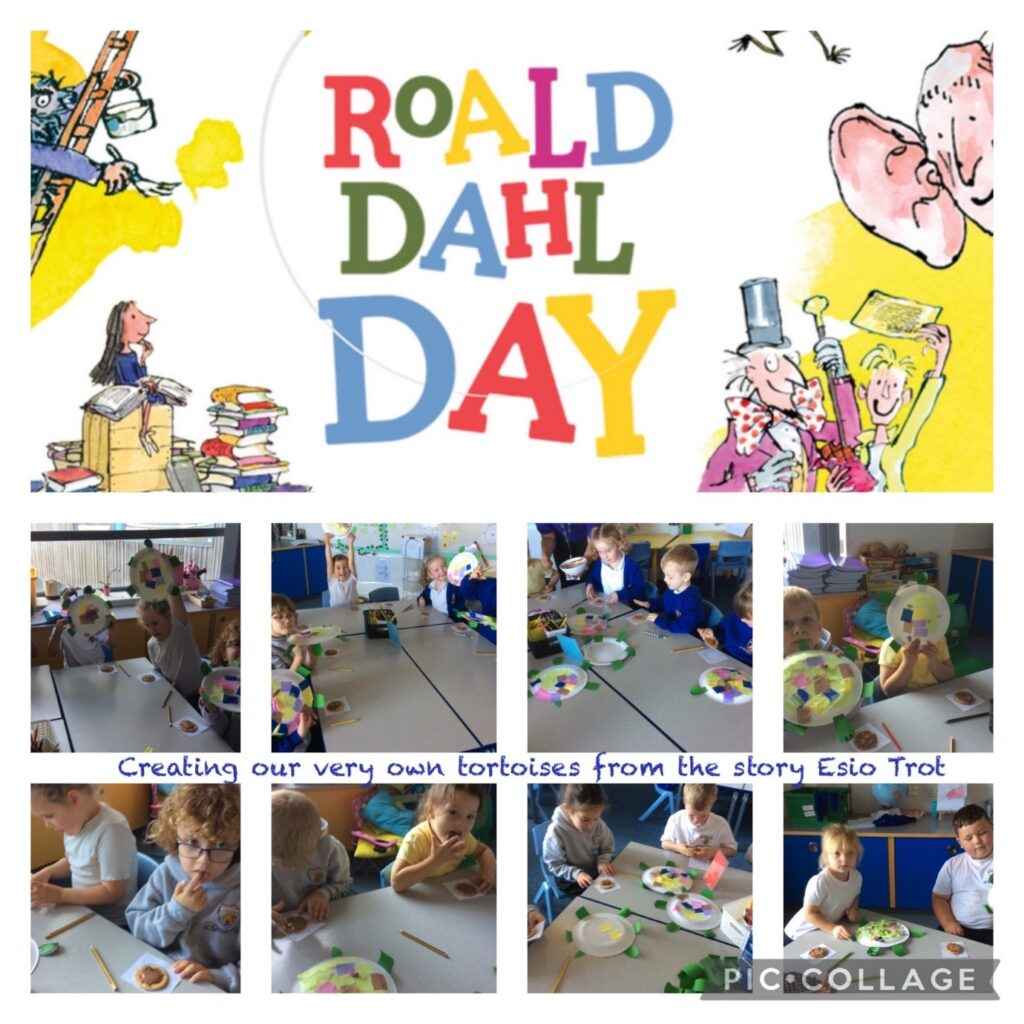
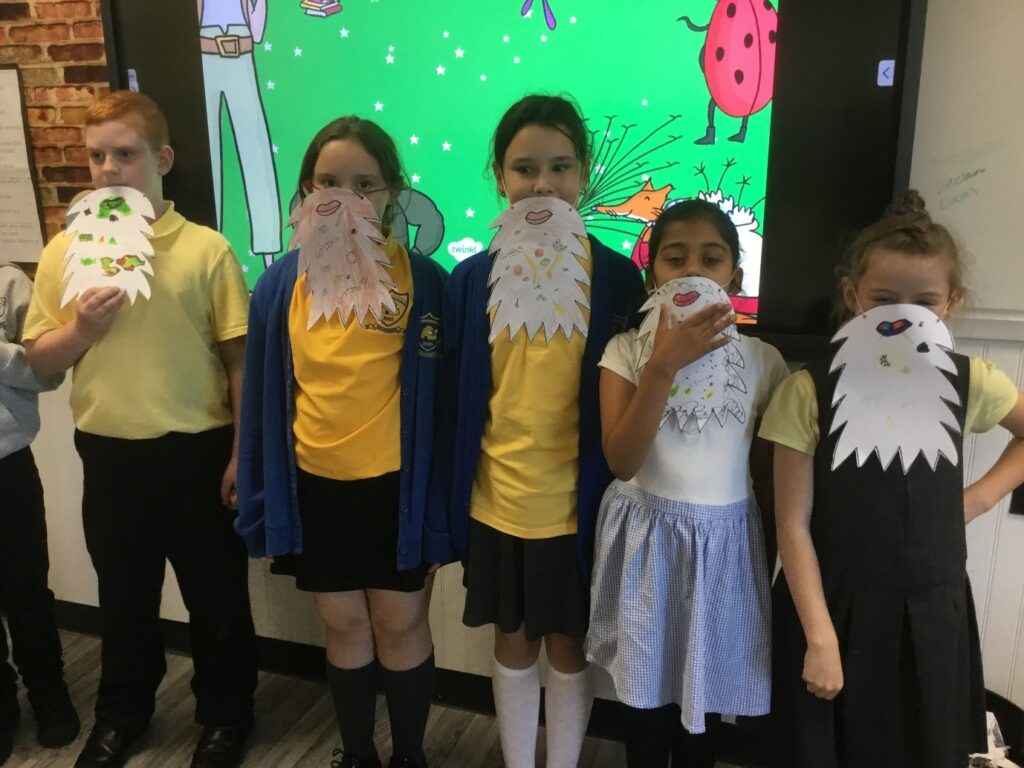
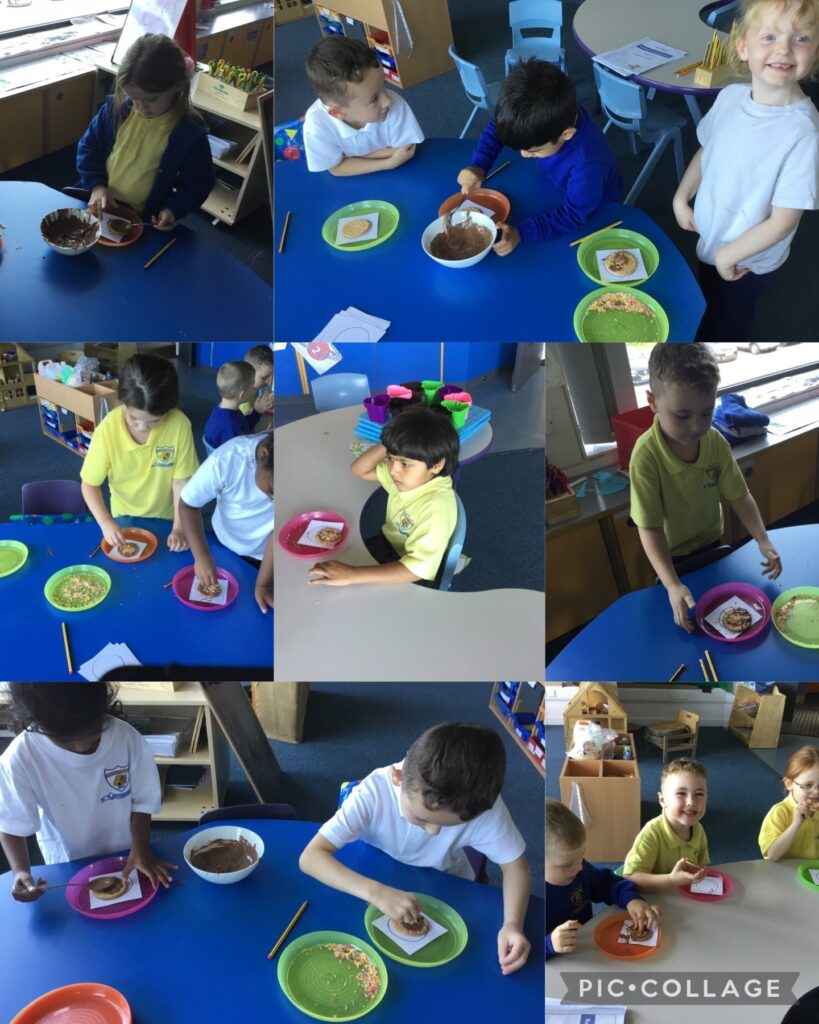
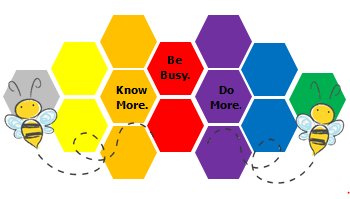
Reading (SfA)
What makes a good reader?
- A good reader actively engages with a text.
- A good reader explores different genres.
- A good reader monitors their understanding of a text.
- A good reader can visualise what is happening.
- A good reader anticipates what happens next.
- A good reader uses expression and punctuation when they read.
- A good reader uses their GPCs to decode a text.
- A good reader reads fluently.
The Vision of Reading
At Devonshire Primary Academy, we pride ourselves in developing a whole school reading culture. We value reading as a key life skill, and are dedicated to enabling our pupils to become lifelong readers in order to navigate their way around the world. It is our belief that our pupils’ successes will be underpinned by their ability to read fluently and skilfully whilst understanding the text read with increasing complexity. We want to develop our children’s imagination to open up a treasure house of wonder and joy for curious young minds.
Intent
We aim to provide children with a language rich environment, high quality texts and inspiring learning opportunities. To ensure a holistic approach to the teaching of reading, we implement the following:
- Children take part in daily reading lessons; SfA (Success for All) where children are exposed to a range of different texts, specific to their reading age. They can demonstrate their understanding and thinking behind these.
- We are fortunate enough to have a wide range of reading books in our school which are continually updated. All children from Reception to Year 6 choose a reading book to take home and the reading book will be changed once the child has completed it.
Our Reading Spine
Our Reading Spine will ensure that each child is able to:
- Gain a life-long enjoyment of reading and books;
- Read accurately, fluently and with understanding;
- Apply a knowledge of structured synthetic phonics in order to decode unfamiliar words with increasing accuracy and speed;
- Be able to read with expression, clarity and confidence;
- Develop a good linguistic knowledge of vocabulary and grammar;
- Read and respond to a wide range of different types of texts;
- Develop a deeper level of emotional intelligence and empathy; and
- Read fluently, and with confidence, in any subject in their forthcoming secondary education and beyond.
Each classroom will have:
- An engaging reading corner, to foster an environment with reading at the heart of learning. The reading corner will consist of a selection of books written by a variety of authors.
- A selection of books which are directly linked to the curriculum areas that they are focusing on. This offers the opportunities for the children to apply their reading skills across the curriculum.
- Daily story time. Children are read to daily by their class teacher. The class novels are read together with the children; this also provides an opportunity for the children to read aloud to their peers.
- The opportunity to visit the school library on a weekly basis. Children choose a book and have the option to change this book weekly or when they have read to the end of the story, should they need a longer period of time. Children may recommend books to each other or it may be a class recommendation.
Furthermore:
- Children who are not yet “free readers”, will work through our school reading scheme; these are levelled books which match the children’s current reading age.
- We expect family at home to read these books with their child and make comments in their child’s reading record.
- “Reading Rockets”, are chosen half termly; three children from each class will be given additional daily reading intervention.
Our aim is to ensure that by the time children leave us to begin secondary school, they are competent readers who can recommend books to their peers, have a thirst for reading a range of genres including poetry, and participate in discussions about books, including evaluating an author’s use of language and the impact this can have on the reader. To ensure this takes place we have a Reading Spine. To view our Reading Spine, please click below.
Reading for Pleasure
At Devonshire, we prioritise reading for pleasure by promoting reading and striving for mastery within the teaching and learning we offer. We have chosen FFT Success for All programmes because they set high reading expectations. The language in the Shared Readers is rich, varied and motivating.
We encourage active reading across the school by:
- Reading to the children every day.
- Offering a rich and diverse range of texts to children; opening their eyes to the world and different cultures.
- Providing book areas in classrooms for children to select and have access to quality texts that are age and stage appropriate.
- Giving every child a home reading record. Parents/carers record a comment to share with staff in school and vice versa to ensure communication between home and school has a positive impact on learning. As the children progress through the school they can choose their own home reader from a reading age appropriate selection.
- Celebrating reading through events, visits and visitors.
Success for All (SfA)
How are children taught SfA?
Children are taught using a range of strategies that form a clear pedagogy (way of teaching) known as ‘Co-operative Learning’.
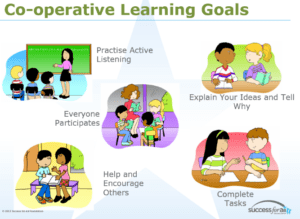
Five ‘Learning Behaviours’ are introduced and clearly modelled by teachers and support staff. Children understand what is expected and positive feedback encourages them to establish good habits and increases their motivation, enjoyment and self-esteem. This enables them to develop the behaviours essential to be happy, self-sufficient and successful learners.
Children sit in teams of four and are responsible for working together to ensure that every member of the team learns successfully. During teaching sessions, teachers ask children to discuss the answer to every question with their ‘talk partner’, who sits beside them, or the rest of their team. This makes sure that every child is involved in learning, has a prepared answer should the teacher ask them to provide one and helps them to develops essential communication and language skills. When an answer is requested, the child’s name is chosen at random, making sure that every child has equal opportunities for success. Children enjoy this type of learning as it is supportive, and they are explicitly valued and involved. Critically, every child has an equal opportunity to succeed. Positive feedback is key in motivating children and is given for effort.
Consistent, silent classroom management signals foster an ethos of quiet and calm, where all children understand how activities are managed.
FFT – SFA Phonics Skills
SFA Phonics is a 45-60 minute daily session introducing new phonemes and ways to write these. The phonemes are then worked on in a shared reading session to develop blending, segmenting and comprehension skills.
Literacy ‘Wings’ Curriculum Mapping – The Development of Reading Skills in Wings (above the reading age of 7)
Wings is a reading programme for children with a reading age greater than 7 years of age. On average, children start Wings around January in Year 2. The books read by children are exciting and inspirational ‘real’ texts written by well-known authors.
Experienced readers have a strong inner voice that guides their reading and builds comprehension. This process is so automatic that we are usually unaware of these vital skills used every time we read. Before reading a text, we identify the Genre & Links and then we predict the content of the text. For example, if it is a detective book, we know there will be a crime, clues and a culprit, and if it is non-fiction, we know we will gain information. This frames our comprehension. As we read, questions continually enter our minds, (“Why did they do that?”/ “What effect will that have?”) and if we fail to understand a word or a section of text we stop, decode, re-read and try to ‘clarify’ the meaning. We continually and briefly summarise what we have read so far, and then predict again, based on that summary. So, in our detective book a summary night be that the Vicar has been murdered and (based on our questioning) the prediction is that his wife is the culprit. These advanced comprehension skills of Prediction, Clarification, Questioning and Summarising are all explicitly and consistently taught and reinforced in Wings and enable children to develop their own inner voice as readers.
Clarification is a particularly challenging skill for children and so at each level of Wings (2, 3, 4 and 5), we provide a ‘Savvy Reader’ unit consisting of five weeks of lessons focusing on clarification skills. Children’s vocabulary is developed through explicitly teaching ten vocabulary words from the text every week.
Fluency is explicitly taught using a range of strategies focusing on expression to aid comprehension and on increasing reading speed, a skill which is essential if children are to succeed and achieve ‘Greater Depth’ in their Year 6 SATs tests.
Children are taught the additional strategy of categorising comprehension questions into three main types: Copy Cat (the answer is right there on the page), Text Detective (inferential questions which require evidence from the text) and Judge and Jury (the answer is based on personal opinion, which must be sensible and backed by evidence from the text). When children read a comprehension question, they decide what type of question has been asked and then apply the strategies they have learnt to produce an effective answer.
These skills prepare children for success in their Key Stage 2 SATs and support their learning in all other subjects.
Ability Grouping
Children learn best when they are working at the most appropriate level for them. Vygotsky said that where children work at this appropriate level (which he termed the Zone of Proximal Development) not only is progress maximised, but the rate at which children develop cognitively can be accelerated. We undertake ability grouping to ensure that every child has an appropriate challenge will accelerate progress. This also means that everything the teacher says in the classroom is relevant to every child so that teaching is easier, and children are fully engaged. This is why children are placed in ability groups in the SfA programme.
Ability grouping isn’t always that simple, however, as research also shows that where children are placed in fixed ability groups, the more able children benefit, but the less able children perform poorly; this is termed as ‘setting’. Research by SfA shows that reassessing and regrouping children every eight weeks supports all children in making excellent progress. This enables children to progress through the Roots programme at an appropriate pace for them.
So, children’s phonics and reading skills are assessed at the start of Year 1 when they are placed in the most appropriate group. Their skills are then reassessed every 8 weeks or so and children may change group, if they have made fast progress. This makes sure that all children are working at exactly the right level for them; the level of reading and writing is never too difficult or too easy!
Reading at Home
- Read regularly to your child and share stories as a family. Always discuss the stories that you have read to try and build your child’s comprehension skills and understanding.
- Find a quiet time to listen to your child read. Praise their fluency and expression as encouragement will help to build their confidence as a reader.
- Practise repetition of phonic sounds at home.
- Make use of your local library. Children love going to the library and having access to such a huge, diverse range of books.
- Access our digital library: https://www.myon.com/index.html.
Useful Websites
E Books:
http://www.magickeys.com/books/
https://www.freebooksy.com/read/genre/childrens/
Resources for Parents and Carers
Get Blackpool Reading! – https://literacytrust.org.uk/communities/blackpool/
https://www.scholastic.com/parents/books-and-reading/reading-resources.html
https://www.readingrockets.org/audience/parents
https://literacytrust.org.uk/parents-and-families/
https://www.blackpool.gov.uk/Residents/Libraries-arts-and-heritage/Libraries/Join-the-library.aspx

